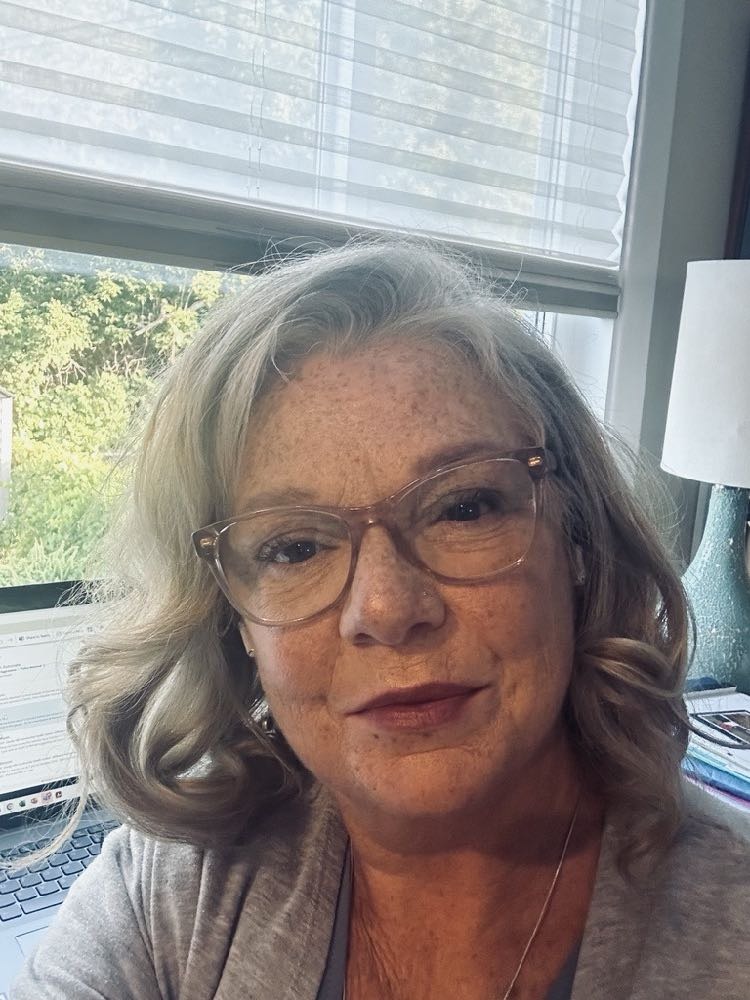Shauna-marie Young began her new role as the executive director at Belong Ottawa on Sept. 9, following the retirement of Rachel Robinson.
Belong Ottawa is an Anglican Community Ministry, which serves hundreds of vulnerable people in the city who struggle with poverty, precarious housing, mental health issues and addictions, providing for basic needs and social support at three locations — Centre 454, St. Luke’s Table and The Well.
Young brings with her a wealth of experience as a registered nurse, educator and leader in health care and management. She earned a Master’s degree in conflict studies and is an accredited mediator. She kindly made time to talk with Crosstalk in late October.
How are you settling in?
“It’s going really well. I’m extremely impressed by the dedication of the entire team, and so that’s really helping settle in for sure…. The team has been warm and welcoming and informative.”
What drew you to Belong Ottawa?
The opportunity to work with an organization whose mission, vision, and values aligns with both my personal and professional vision and mission and value system was really the calling to join the organization. My passion has always been serving those who are less fortunate, whether that’s marginally housed, living with substance use or comorbid psychiatric conditions. My background in nursing has led me to be aligned to serve those who are most in need in our society.
What pats of your experience best prepared you to lead Belong Ottawa?
Belong is a small organization, recently amalgamated, and so there is a growth opportunity here…. I have worked with Pauktuutit Inuit Women of Canada, with the Royal Ottawa Mental Health Care Centre (formerly the Royal Ottawa Hospital) and with Carlington Community Health Centre. In those positions, I was responsible for change leadership and management, whether that was at the point of care, or organizational infrastructure, so all of those skills are very important for me in this role now, as is my background in nursing and knowledge around mental health, addictions and psychiatry.
I worked at the Royal Ottawa for about six years, managed the substance use and concurrent disorders program at the time when the hospital was evolving to become a tertiary care centre, and a centre of excellence, so there was a huge transition. My knowledge, skills, ability and experience in mental health and addictions is also as important because I very much understand the needs of our participants.
I’m an accredited intergenerational mediator, so I understand family systems and the methodology and the research around various issues families face. And often some of those issues are what led our participants to have lost their contact in their support systems.
I’m am also an accredited manager and leader, and I am committed to the people that I work for. That is not just the participants, but the amazing team at Belong — so supporting the excellence in the service delivery to our participants and also serving the staff, the employees, our valued human resource, which is the why and how we can do what we do. They are equally important to me.
I don’t think there’s one piece of my background or experience or knowledge that is more important than the other in this role. It’s the whole basket that I’m bringing forward, and to be honest with you, I have tapped on every bit since my first day.
Early in your career, you lived and worked in the North. What did you do there?
I was living in Iqaluit…Working with and serving in health services in Iqaluit—a formative experience in my early nursing years….
It was really an important personal family experience and a professional growth experience….I wanted my children to learn, to experience part of Canada that they might never see [otherwise]. I wanted them to understand what it’s like to live as a minority, even in their country of origin. It was a great adventure to live there, to understand the eastern Arctic and Nunavut and learn that Canada isn’t just the east and west coast, there’s three coasts in this country…. Many Inuit populate that north coast, and the Inuit Regions are are vital to our country — a very rich ecosystem, very rich in culture and traditional Inuit knowledge .
More recently, you served as director of programs at Pauktuutit Inuit Women of Canada here in Ottawa. What was the focus of your work there?
I was hired to create a division where we addressed social and economic prosperity, safety, justice, health and well-being, and anti-violence in support of Inuit womens rights, health and prosperity.
What are the biggest challenges you see at the moment or on Belong Ottawa’s horizon?
There’s still opportunities for …supporting our team and further development of the infrastructure, and creating stability in a newly amalgamated organization….
There is ongoing opportunity to work with our allies and partners in Ottawa to address the issues of food insecurity, lack of affordable housing… and finding creative ways with our partners to address and eliminate homelessness.
Are there specific hopes you are envisioning?
Consolidating the organizations in ways that continue to support the current day programming we are engaged in that makes a difference in the lives of 600 to 700 people a day in Ottawa, and also really focusing on supporting the entire team … so they may continue to do the work they’re doing.
We are really looking forward to the rebuild of St. Luke’s [which was severely damaged by a fire in October 2022.]
And ongoing community relations with our neighbours around each of the service areas, continuing support and education and raising awareness of the needs of the populations we serve…trying to be good neighbours, working closely with our parish partners.


Saint Mary’s Church, Westmeath — Deanery of the Northwest